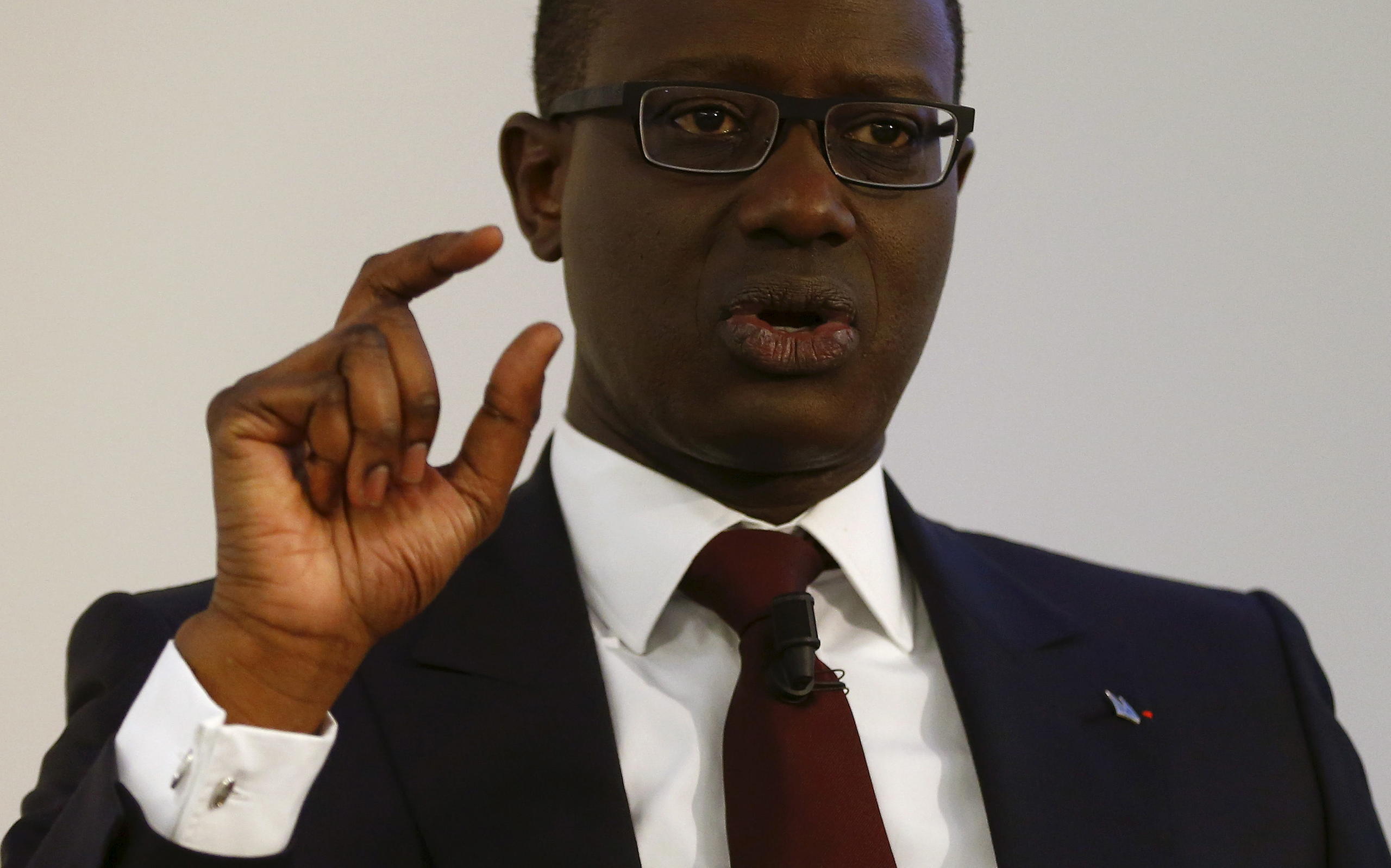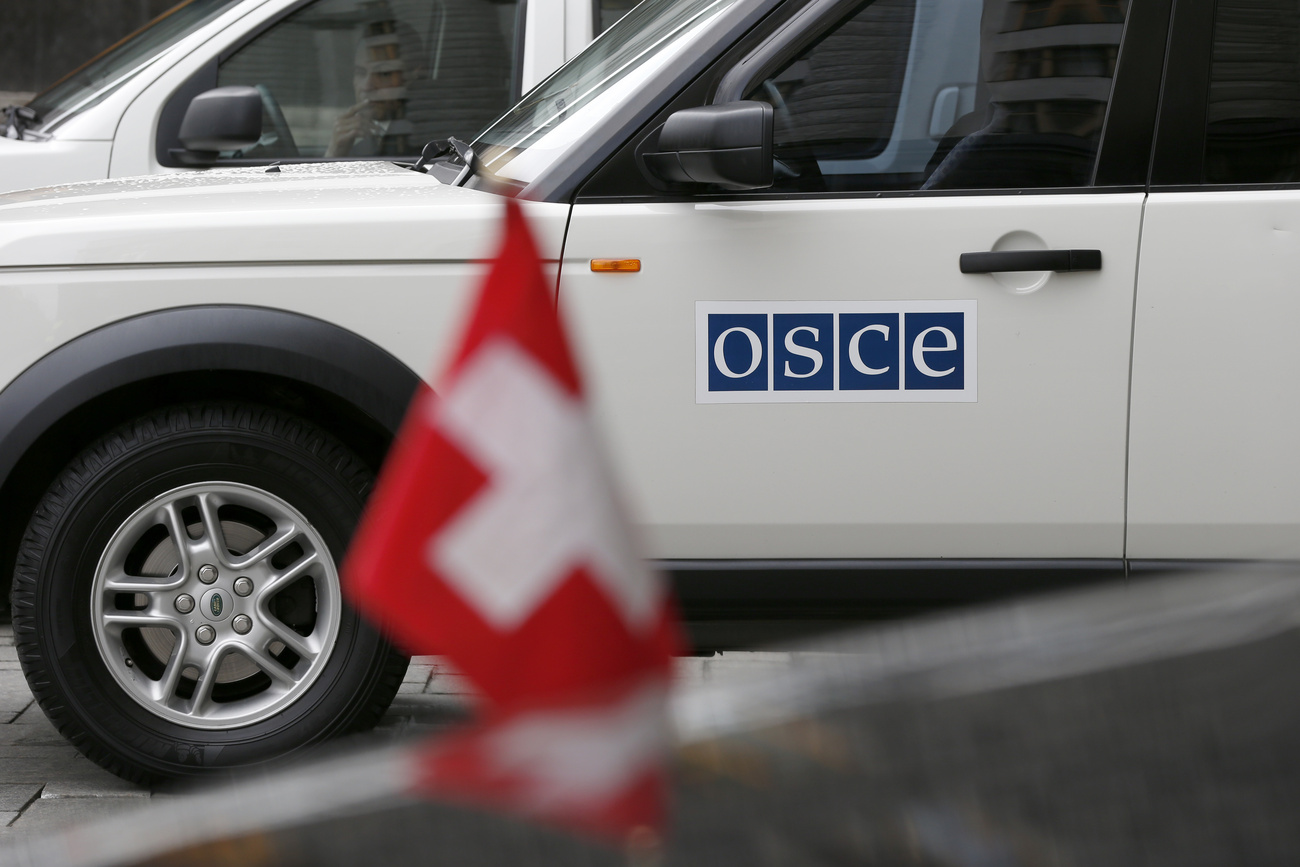
Executive pay rises despite law change

The day after it announced 2,000 more job cuts, Credit Suisse revealed that it paid its newest chief executive, Tidjane Thiam, some CHF4.6 million ($4.7 million) for six months of work last year. Three years on from the Minder initiative, its author still isn't happy with executive pay.
Switzerland’s second largest bank also said on Thursday that it had awarded Thiam, an Ivorian businessman and former politician who became the bank’s CEO in June 2015, some CHF14.3 million in shares to compensate for the earnings that he would have received if he had stayed on at Prudential, where he had been the chief executive since 2009.
Based on past remarks, many commentators likely would argue that it is unfair to single out Thiam. He did, after all, voluntarily give up 40% of his bonus as the Zurich-based bank made losses. Moreover, his crosstown rival, Sergio Ermotti, CEO of Switzerland’s biggest bank, UBS, saw his pay rise 28%, up to CHF14.3 million, for a full year’s work – albeit with better results on earnings.
A survey of pay levels at 14 of Switzerland’s biggest firms last week, carried out by the consultancy firm hkp Group, found that chief executives enjoyed an average raise of 11% last year compared to 2014. That made for an average payout of CHF7.9 million. Among smaller listed firms, average CEO pay rose 4% on average, up to CHF3.7 million.
The public debate over executive pay died down after politician Thomas Minder persuaded voters to overwhelmingly accept his initiative against “rip off” salaries in 2013. Now part of Swiss law, the initiative gives shareholders of listed firms binding votes on remuneration packages and outlaws various types of bonuses, such as ‘golden parachute’ severance agreements, or handcuffs.
Disquiet about so-called fat cats has not gone away completely, however, and it still simmers in the background.
‘Unbounded cheek’
Minder himself remains dissatisfied with his own initiative, which he complains was diluted first by parliament and then by the wording of the resulting law. In an interview on Sunday with the SonntagsZeitung newspaper, the independent politician and company boss accused some firms of “unbounded cheek” for getting around the spirit of the law with sharp practices.
A case in point would be Thiam’s CHF14.3 million compensation package for switching from Prudential to Credit Suisse last year. Minder is firmly against such practices.
“Compensating lost bonuses in order to poach someone from another company is absurd,” he told SonntagsZeitung. He also took aim at insurance giant Zurich for awarding shares to its departing CEO Martin Senn even though the company denied this amounted to a ‘golden parachute’.
Minder accused the government of fudging the wording of the revised law to allow loopholes in remuneration policies.
Last October, sustainable investment company Ethos Foundation, which counts many pension funds among its clients, also criticised what it called loopholes in the revised law.
Switzerland’s main business lobby group, the Swiss Business Federation (economiesuisse), disagrees. It argues the initiative was not meant to limit how much money that companies pay to their executives.
In contrast, it says shareholders won greater powers that make them the direct owners of companies – responsible for approving pay levels. “The intervention was wrong, and remains wrong,” Thomas Pletcher, economiesuisse’s expert on regulatory affairs, told swissinfo.ch. ‘But we must accept the vote of the Swiss public and now stick to the rules we have.’
Law working
To tinker further with the revised law would create greater uncertainty for foreign companies moving to Switzerland or for overseas investors who bring their money to the alpine state, Pletscher added.
Martin Pfändler, a senior partner at hkp Group, says the Minder initiative strengthened the link between pay and performance at Swiss companies. And it has almost certainly done away with the worst fat cat excesses – such as the proposed CHF72 million golden gag bonus intended for departing Novartis boss Daniel Vasella in 2013. After a public outcry, the company cancelled the bonus.
The general increase in executive pay last year should come as no surprise to people, added Pfändler, despite the Minder initiative or the turbulence created by the strengthening franc.
“Despite the impact of the strong franc, we have seen some examples of good company performance,” he told swissinfo.ch. “CEOs at companies that have underperformed have, with a few exceptions, experienced a decrease in remuneration.”
Therefore, while Ermotti’s compensation rose sharply as UBS enjoyed a stellar year, Senn saw a drop in remuneration as Zurich struggled. Some 55% of the CEO pay recorded by hkp was in the form of long-term bonuses that could be reduced, or even erased, if targets are not met.

In compliance with the JTI standards
More: SWI swissinfo.ch certified by the Journalism Trust Initiative




























You can find an overview of ongoing debates with our journalists here . Please join us!
If you want to start a conversation about a topic raised in this article or want to report factual errors, email us at english@swissinfo.ch.